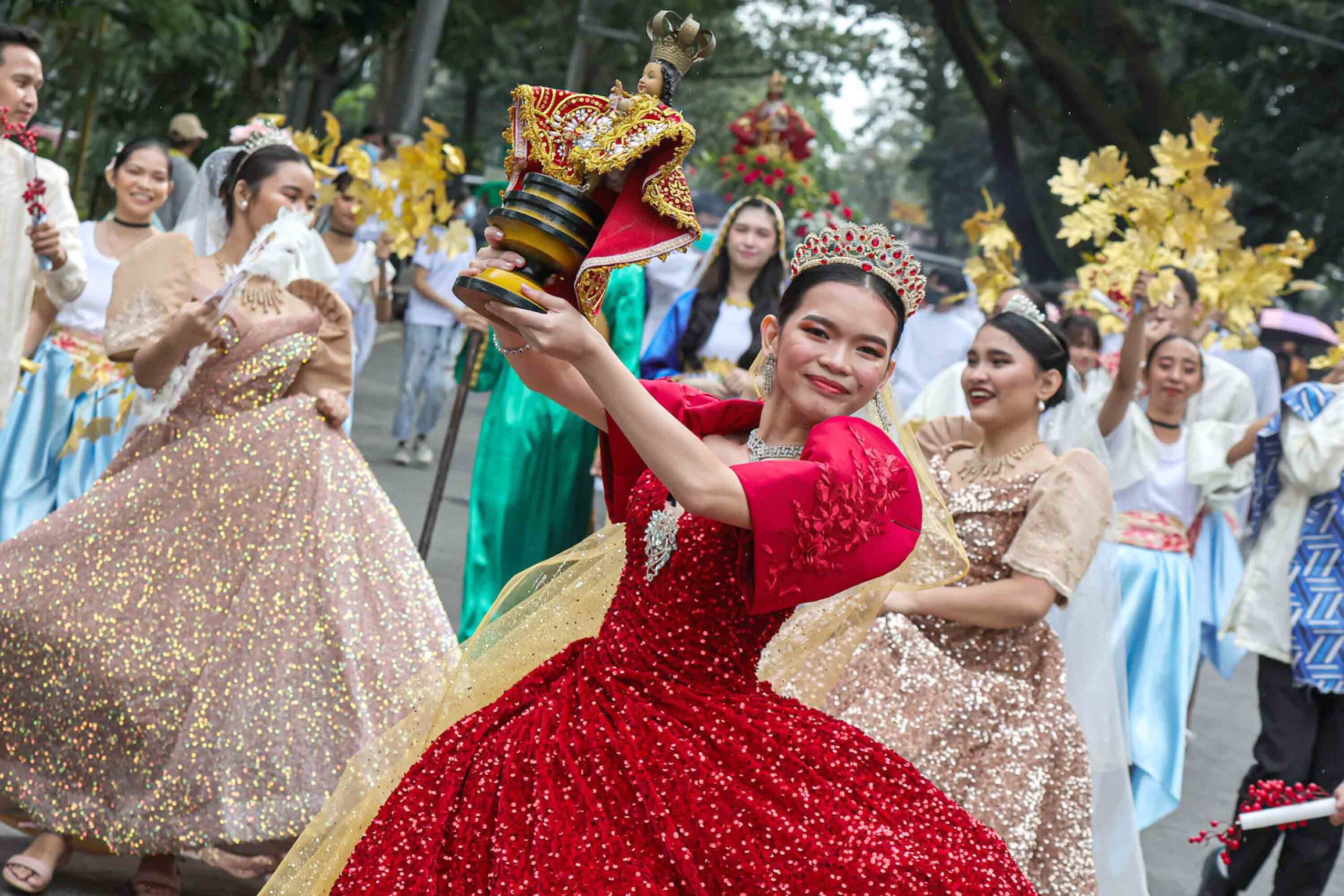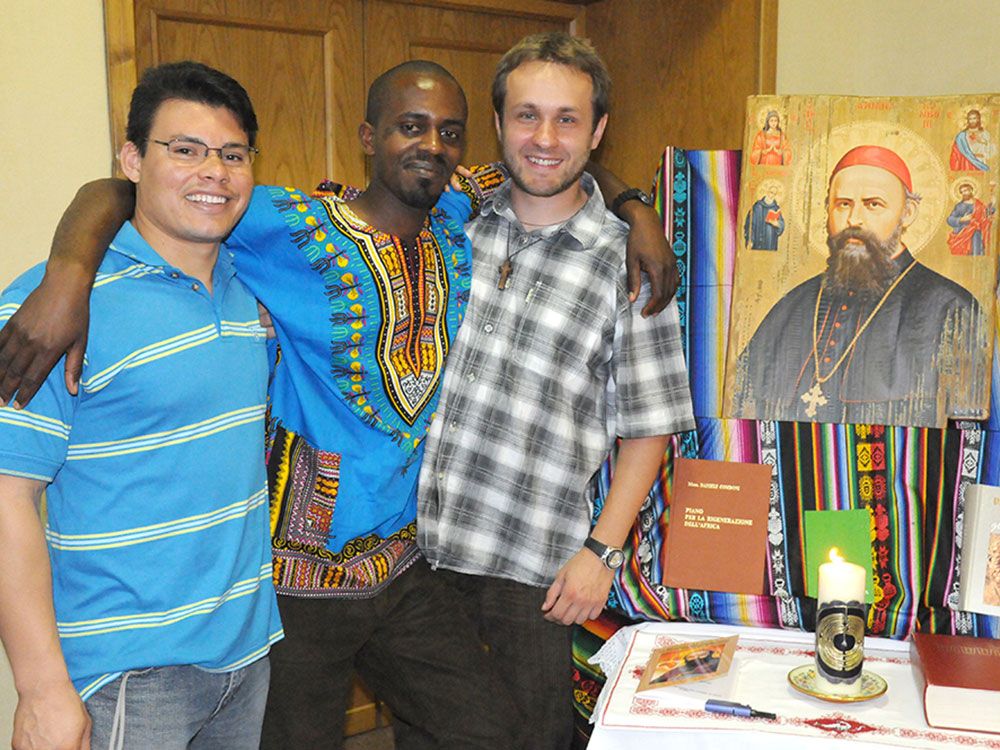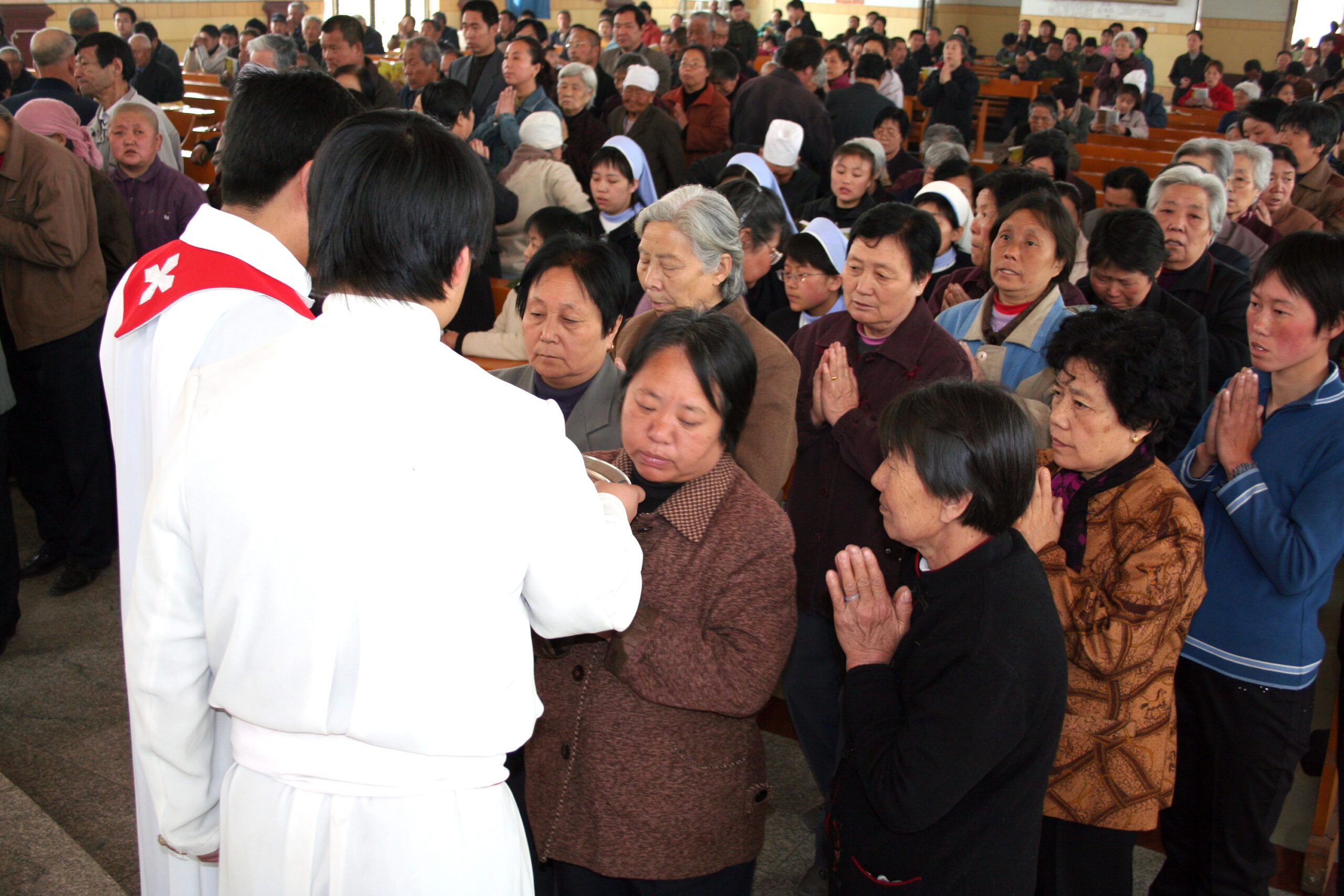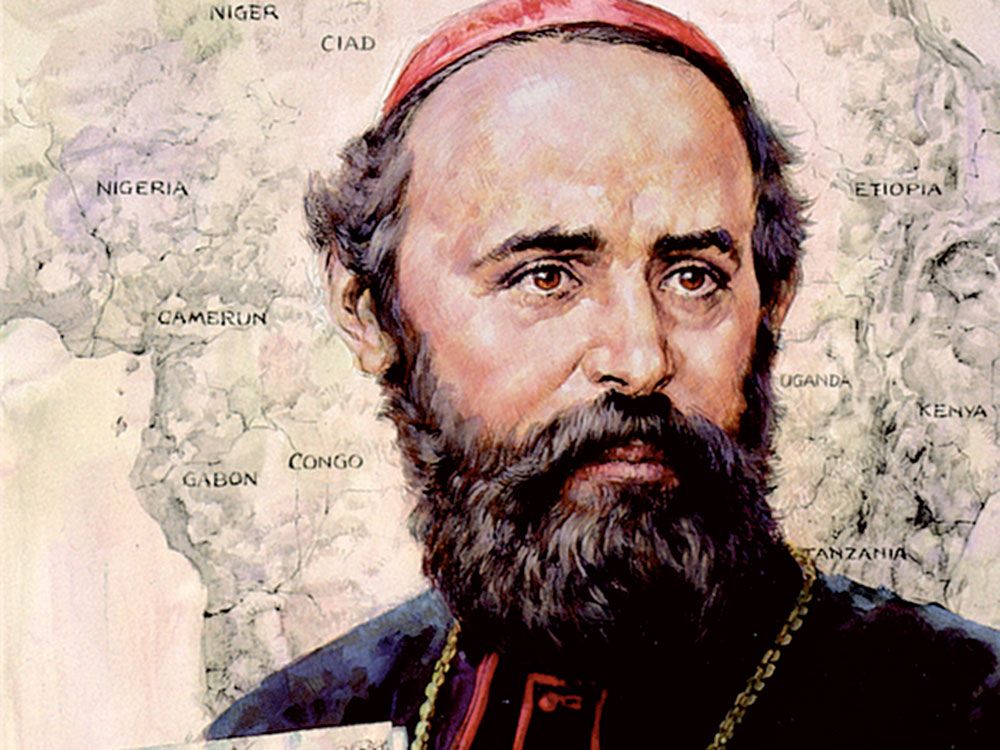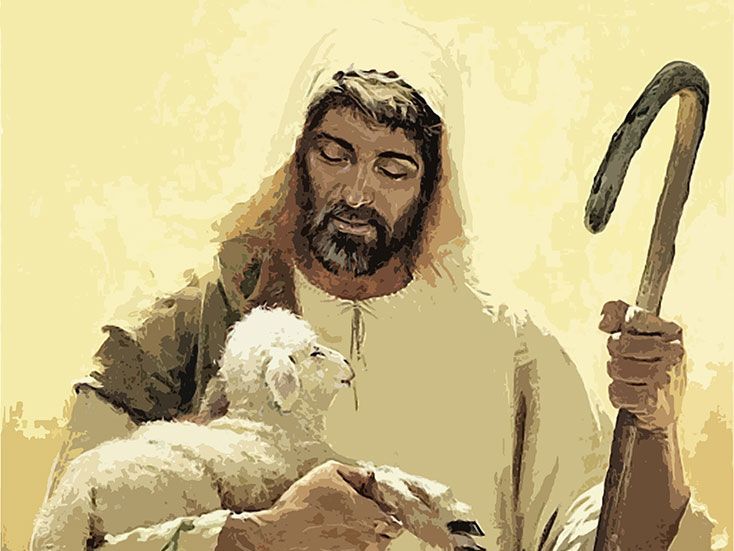Once I was just walking on a street. A guy came up, thinking that I was a tourist – I was wearing casual clothes – and said: ‘Hi, Joe! Do you wanna a girl? Do you wanna girl, Joe?’ ‘No, no.’ ‘Wow! How about little girls? I have two of them here.’ There were two little 12-year olds in the doorway looking miserable. It was so shocking! I threatened the guy that I would call the police. He started laughing as if he was one. Policemen were standing on the road also laughing. They were making business selling girls to thousands of US sailors. I felt so frustrated but I could do nothing.” This iconic episode that occurred in the first years of his priestly ministry was a wake up call for Fr. Shay Cullen. The Irish Columban missionary, who after his ordination in 1969 had been assigned to the Philippines, was working as assistant priest in the Parish of St. Joseph in Olongapo, a city almost 200 kilometers northwest of Manila.
There were many schools in the Parish and he started giving attention to the young people. Many had drug abuse problems and formed gangs to find emotional support and security. He realized that many of them hailed from broken families. One of the reasons was the city’s thriving sex industry. There were hundreds of sex bars and clubs that catered to American servicemen. Thousands of young women and children were being commercially sexually abused and exploited.
Meanwhile, visiting the jail, the intrepid missionary was surprised to find so many young kids as young as 9/10 years old behind bars. He was asking himself what those emaciated, starving and ragged kids were doing in jail. “I felt like I wanted to get out of the Rectory, of the church compound and meet these young people. Eventually that’s what mission became for me – helping people who were in very bad circumstances,” confesses the missionary who asserts to have always been inspired by Jesus’ declaration of his mission in the Synagogue of Nazareth. Using a text from Isaiah, Jesus says that He had come to preach the Good News – to free the captives. Fr. Shay explains: “Of course, there are all sorts of captives, not only to be freed from evil, but also from oppression, poverty, humiliation, human suffering of all kinds… Even physically getting kids out of prison was a mission I took.”
Such experiences became the turning point of his brief pastoral work. Because of his passion to help the youth, especially the drug addicts, he was persuaded to leave the traditional Church work. First, he joined an existing program – called DARE – to rescue victims of drug abuse and get some training; then, he founded the PREDA Social Development Foundation. He looked for a place and assistance. Alex Corpus Hermoso, a 17-year old sociology student from San Marcelino, Zambales, who had just started college in Manila was invited by Fr. Shay to join PREDA. He transferred from Manila to the Columban College in Olongapo. Fr. Shay found another helper in Merly Ramirez (deceased), a management graduate, who later became Hermoso’s wife. The good Olongapo Mayor Geronimo Nipumano assigned to them a five-hectare property in Upper Kalaklan, on the way to Zambales, immediately after the public cemetery. There, they started building a home for the youth using metal sheets from dismantled structures of the US Naval Base. The place, perched on a hill with a superb view over Subic Bay, has been PREDA’s headquarters up to now.
Healing center
PREDA – an acronym for People’s Recovery, Empowerment and Development Assistance – opened its doors on February 22, 1974. It started receiving children from the streets, from the jails and with family problems. Fr. Shay could count on the help of three experienced social workers. Some former drug users who had recovered joined them later on as peer group counselors. They developed a whole rehabilitation program with no guards, no gates, trusting the young people and offering them a new life with happiness, dignity and respect. Kid’s emotional and legal problems were dealt with. It was a therapeutic home to rescue and empower children in the spirit of the Gospel.
Martial Law, which had been declared two years before, was very strict on drug-addicted kids and teenagers. Those found roaming around the streets and suspected of being rebels, were just picked up by the police, shot or imprisoned almost without trial, recalls Fr. Shay. PREDA started rescuing them. It became “a refuge, a sanctuary, a place where the children could be sent,” stresses Fr. Shay. His concern for street children kept unchanged over the years: “Even today, part of our mission is to help street kids. They are being shot in Davao, General Santos, Cebu, Metro Manila… There’s a hit squad inside the police, we know it, and they just go out and kill anyone, especially teenagers, whom they consider criminals.”
Special attention was given to the youth’s spiritual formation. Fr. Shay states: “It was important for them to know that they were loved by God, they were cared for, they had dignity and they were not useless. We built up their hope. The community we created was a spiritual community. They learned skills, got education and were helped to deal with their traumas. It was very important, because many of those children were victims of abuse. They had been abandoned, hurt, neglected; and they felt unloved, unwanted, rejected. So we made them feel affirmed, regain hope, and we helped them to have a good future.”
Vicious trade
As the Vietnam War spread, the US military bases in the Philippines expanded. The US Seventh Fleet disgorged there more than three million military personnel a year, fueling the sex industry. Olongapo was dubbed the “Sodom and Gomorrah of South-east Asia.” The country, advertised for its cheap labor even in Newsweek with the slogan “A dollar a day, we pay,” became a tourist destination. Fr. Shay was convinced that such a boom of the sex industry was rotting society and weakening the Christian values and vision of life.
With his team, he found out that many street kids were being sexually abused. Poverty on an epic scale tossed thousands of children into the arms of pedophiles and traffickers. There were some disturbing cases that challenged him to go and save the street children who were being exploited in sex clubs and taken by pimps to the streets and sold overnight to customers.
A horrendous case came to the limelight on July 5, 1982. The mother of nine-year-old Filipino-American Jenny went to St. Joseph’s Community Center to get help for her daughter who was having a genital infection. They were referred to Pope John XXIII Clinic, a Church-run clinic for the poor. Jenny was found to have herpes, an incurable form of venereal disease. Three days later, another child, 14-year-old Annabel, was brought to the clinic with gonorrhea. The girl told social workers that there were 18 in their group all infected by Sexually Transmitted Diseases (STDs) such as gonorrhea, syphilis and herpes that were common among prostitutes.
The social workers went to look for them and were able to find 12 of the girls and bring them to the clinic. Sister Maria reported the case to the mayor who ordered that they be locked away in a small room in the TB section of the general hospital. Sister was imposed, under great threats by city officials, not to publicize anything about those victims. Scared, she went to tell Fr. Shay her worries three weeks later.
Deportation and death threats
The following day, on July 12, he and Alex Hermoso, the Center’s program director, armed with tape recorders and cameras, went to see what was going on, find the truth and document it. They got inside the hospital through a back door. But they found only seven children. The other five had managed to escape previously through a window. The children shared their horrifying stories of street prostitution especially with US servicemen. They agreed to be taped and photographed. The mayor and the base commander came to know of their undesirable visit to the children in the hospital and tried hard to contain the unraveling scandal. But one week after, the exposé came out in the front page of the only independent paper, published by Jose Burgos, that had survived the media crackdown by Marcos. Fr. Shay concludes: “It became a sensation in Manila. It was the first time anyone had ever spoken about sex abuse of children or even women in the media because Imelda Marcos had banned publicity of the bad news.”
Those denunciations were used to have Fr. Shay deported for “having abused the hospitality of the people of Olongapo!” It was a gesture of retaliation for exposing the child prostitution ring. For years, he faced an uncertain future as did PREDA. Fr. Shay recalls: “It was a very difficult time. Those sending us death threats were saying: ‘You’d better get out of town if you don’t want to be dead tomorrow!’” PREDA’s success in rehabilitating drug-dependent youth was weighing in his favor before the authorities of the Bureau of Immigration.
Another horrific case, discovered in May 1986, was that of Rosario Baluyot, a 12-year-old street child. Rosario had been picked up, probably, by a sex tourist, harshly abused and then abandoned on the street. She was found in agony with a severe infection in her vagina and brought to the Olongapo City General Hospital. She had to be operated on, but no parents or family could be found. Sister Eva Palencia, a religious nun of the Daughters of Charity, in charge of the St. Joseph’s Community Centre, guaranteed that she would get donations to pay the expense of the operation. The surgeon operated on Rosario and removed the head of a sexual vibrator from her vaginal canal – an object of about two-and-one-half inches long, rounded and as thick as a medium-size banana. The damage was profound, the infection had spread beyond control. It was too late to save her. Rosario died in terrible pain on May 20, 1987.
The case exposed the viciousness of the child prostitution business, a social evil long denied by the corrupt local administration. The fearless missionary and his team took action. They publicized it and protested strongly against the local government that was failing to protect street children. Worse, it was giving permits and licenses for sex bars to operate, creating an environment where exploitation of children and women was made possible. Fr. Shay notes: “We had a hard time because the politicians wanted to shut us up. But we had to be prophetic. That is what mission is all about – just do what Jesus did. He confronted the powers of His time when they appeared to be oppressing the poor people. He said that His mission was to free the people and create a new world, to bring a kingdom of truth and justice. We felt that we could not cover up any abuse. We had to speak out.”
The discovery of multiple sex abuse cases by sailors, made Fr. Shay campaign against the American military presence even though the cause was unpopular. He was convinced there would be life after the American withdrawal and proposed conversion plans for Subic and Clark bases in 1983. They closed on November 24, 1992. He comments on such an achievement: “I am sure the Good Lord intervened greatly because those bases closed exactly 10 years after we had started looking into this issue.” Since then, the plans have all been implemented, giving dignified jobs to 60,000/70,000 people. The sex industry struggled for a while but then local pimps teamed up with foreign sex traffickers so it expanded in Olongapo, known as “Sin City.” It was revived in Angeles City, Manila and has spread everywhere.
Trafficking of girls
In 1996, the Department of Social Welfare and Development (DSWD) asked PREDA to focus on rehabilitating sexually abused girls. Since then, they have been providing therapeutic intervention and legal assistance to them. They set up a home for girls sexually abused in their own families (there are 41 girls in the therapeutic home, the youngest is a 4-year-old who suffers from STD) and another home for victims of trafficking and commercially sexually exploited children, (it has 20 girls). They do not mix them. The reason, Fr. Shay explains, is that the girls, all minors sexually abused at home and by neighborhood pedophiles, are deeply hurt and psychologically disturbed and angry with their abusers; they want to put them in jail. The girls coming from sex bars and clubs are brainwashed into believing they are worthless, hopeless, and that this is the only life they can live. They cannot leave because they have debts and are convinced that the sex club ‘family’ is their only source of support, hope and future. The owner is big Daddy, then there’s the “mama-san” (floor manager), Ate (Big Sister, the main adult prostitute who trains them) and the rest are called sisters. Fr. Shay asserts: “They abuse the need of the Filipino child for family bonding and use all that as a way to coerce and make them feel loyal and support the club by going with customers. The girls become very dependent and they can’t see any other future. For them this is life.”
Most girls are trafficked in the sense that they come from poor families in other provinces, Samar, Leyte, Batangas. There are scouts and recruiters who go to the villages and towns offering jobs as domestic servants or hotel waitresses. They give some little money to the mother to allow them to go. The girls are taken away to sex clubs and bars and locked inside. They are told that they cannot leave because their parents have been paid in advance and they have to settle their debts if they don’t want to be arrested. They are trapped: They are charged by the club owner for board and lodging, the purchase of clothes and for a list of endless debts. It is a way of keeping them controlled. After sometime, the girls are sold to another bar.
According to the UN children’s agency, UNICEF, there are about 60,000 to 70,000 children serving as prostitutes or being used in the commercial sex industry in the Philippines. But the estimates of PREDA are much higher: “We can say at least 120,000 girls under the age of 17 are being used in the sex industry and even more. We don’t know exactly, because it’s all illegal, it’s a secret.”
Fr. Shay claims that it is easy to get children. He adduces a recent shocking experience: “I was in Manila last week (first week of December 2009 – Editor’s note). I went around Malate Park and talked to a lady. She offered me young girls, virgins… ‘How old are they?’ I enquired. ‘Fourteen years old, fifteen…’ ‘How much do they cost? ‘Three thousand pesos,’ was the answer. ‘OK! Bring them here!’ The pimp left and while I was waiting I got my companion in a parked van to give me a radio mike and to video tape the scene from the shadows in case she did return.” Soon the pimp showed up with two young girls. Fr. Shay was not expecting that, because the government says they had cleaned up that area. Within a quarter of an hour, surveying the situation, he had two minors being offered to him on the street. Previously in similar cases, with the women police headed by PNP General Yolanda Tanigue, the pimps were arrested and the children saved.
There are laws protecting children, forbidding prostitution and trafficking, but they are patchily enforced. There’s a problem with their implementation. “While some NGOs are working to stop society’s rampant evils, many, not all, of the government officials are more interested in politicking, abusing power, plundering the country’s resources and living extravagantly.” Harsh is Fr. Shay’s judgment: “The government, with some exceptions, is not committed to implementing the child protection laws. One might say that the Philippines, with regard to bringing about a civilized developing society based on the rule of law, is a failed state. It does not do it.”
Justice for children
PREDA’s biggest challenge is trying to bring the children’s predators to justice – bar owners, pimps, traffickers or home abusers. Fr. Shay says: “The mission of justice for children is one of our main activities.” But he admits that they basically fail in the sense that they have very few convictions. In December 2009, after 8 long years of legal battle, the case filed against a local pedophile finally ended in a conviction and a sentence of life imprisonment for abusing two children, 5 and 7 years old. Fr. Shay comments: “The problem is that prosecutors do not believe that sex with children is really a bad crime. We have to wait one year for the prosecutor to even look at the folder or examine the case! Perhaps they are bribed by the accused to delay the case which can carry a life sentence.”
When PREDA rescues children, the abusers may come after them and file countercharges. But PREDA is used to facing such hurdles. “We have only one real bad thorn, a crazy American guy.” And adverts: “You cannot use his name, otherwise, you’ll be sued the next morning. Whenever my name appears, people will get a letter from him expressing his hatred against us, because we nailed him. We have public documents on our website legal page and he cannot sue us over those. He has been convicted here in Olongapo for malicious prosecution.”
According to Robert Garcia, head of the PREDA paralegal team, the guy has filed 32 cases against PREDA staff – for libel, slander, perjury, obstruction of justice, kidnapping, rape and all other crimes he can think of. Any news coming out on their web page pertaining an old case is an occasion for him to file new charges. So far, the latest filed was in 2007 based on a letter of 2002 to an NGO explaining the situation regarding him. But all the cases have been dismissed, except one, a libel case. Robert explains: “This man was involved with the 12-year-old daughter of a nanny (housemaid). In order to prevent us from going after him, he filed charges against us. Every time there are court hearings, eight staff of PREDA have to leave the office to attend the session.”
Rehabilitation based on trust
Helping exploited girls is not PREDA’s only challenge. The organization has been systematically rescuing and rehabilitating many more boys in conflict with the law since 2004. Around 500 children have been released from jails and detention centers by compassionate judges and admitted to the Center and helped to resolve their legal cases and to reconstruct their lives. It came about out of a great demand. Alister Oca, one of the psychotherapists, explains the context: A survey made in 2000 found out that there were 20,000 children incarcerated, mostly placed with adults in rancid prisons. In one prison cell, one could see around 10 children with 40/50 adults who would abuse them physically and sexually. Children are defenseless against abuse and, in overcrowded jail cells, punching or bullying of the minors was common. The incarceration of minors in prison is a violation of children’s rights and there wasn’t a rehabilitation program for them.
First, PREDA social workers started conducting jail visits, providing legal assistance, contacting the children’s parents and the government social workers to work for the transfer of the children from the jails to the PREDA home for children in conflict with the law. It worked eventually; several family court workers, judges cooperated. Many of the children were on the streets involved with petty crime because their parents were unable or unqualified to care for them or parents continued to maltreat them or the family was experiencing misery and starvation. The PREDA Center was opened so that the boys could have educational assistance (three of the facilitators are qualified teachers), skills training, character formation, psychological therapy, values formation and they could be assisted in their legal cases, if possible to reach an amicable settlement with concerned parties or have their charges dismissed.
At present, 52 boys are there. And a new home, with greater capacity, has just been inaugurated in Nagbayan, Castillejos, in an organic farm surrounded by fields and bordered by a stream and hills. The country’s so-called youth rehabilitation centers are overcrowded. The numbers of kids needing rehabilitation are increasing and the centers cannot handle them, says Fina Marabe-Marañon. In the Manila Youth Reception Centre alone, there are more than 220 children in primitive grim conditions. She was trying to facilitate the release of some of them and their transfer to PREDA’s custody. After many efforts, she did manage, with the help of PREDA’s rescue and legal team, to get out 10 children last November. It was considered a great breakthrough that opens good perspectives for the future.
In the Bukang Liwayway (New Dawn) Social and Human Development Center, there are no guards, no gates, no punishment, but affirmation, respect, dignity, genuine care and education. Fr. Shay comments: “There’s no need to put these children in jail anymore if they only have this kind of enlightened, respectful and transforming aid. It is evident that the Gospel values work; they really enlighten lives and people to a new plan of existence. This is so inspiring that it keeps me and my staff working as a team.”
Releasing therapy
The heart of all PREDA rehabilitation programs is the Emotional Release Therapy. It is based on the Primal Scream Therapy developed by Dr. Arthur Janov, notes psychotherapist Alister Oca. Fr. Shay claims: “It is unique to PREDA. It is very helpful to the children to release all their pain, anger and the suffering they have endured. Otherwise, I don’t think we could have succeeded. There’s too much anger inside these kids. They bring with them all their troubles, all their childhood pains, hatred, sufferings… and, here, we let them release all these negative feelings and give them positive affirmation.”
The therapy is administered in a special room, a padded room, where they can relieve the experiences of repressed anger and cry out all their troubles, shout, and scream and bring out all their sufferings and traumas. After unburdening themselves, they tell the monitors their real life story. Their thoughts and judgments are clearer; attitudes and relationships with other residents improve. Fr. Shay observes: “This is a big liberation, this is freedom from oppression. Anger, hatred of the world, of society evaporates. Then they can focus on positive things and find a future.”
Sense of achievement
PREDA has been nominated three times for the Nobel Peace Prize, as well as for other international awards, for its courageous defense of the most vulnerable. Its founder and president, Fr. Shay, has just been nominated for the “Transparency International Integrity Award” by the Berlin-based prestigious organization Transparency International. Such recognitions, notes Fr. Shay, “create publicity and they establish in the mind of people that this is important. They certify that what is done is good work and protecting the rights of children is an important mission.”
There’s a sense of achievement shared by the staff for some won battles, but they do not bask on triumphs. They have been rescuing street children, boys behind bars and drug addicts, combating child prostitution and saving victims, helping them to have a future, creating awareness about the international sex business, appealing to governments abroad to investigate their own pedophiles, child abusers and traffickers and challenging the local government to pass new laws to protect children. They have lobbied for the anti-trafficking law and helped to write part of the anti-child pornography law. Now, we can hardly find kids under 15 inside jails, according to Fr. Shay. That means “the new Juvenile Justice Bill (RA 9344) is being implemented – maybe 40-50% – and such a success in implementing a law is a big step forward in the Philippines.”
When he feels sad over corruption and the injustices done to the poor, he looks at the lives of the children they have saved – how they have been liberated, evangelized, and found a new purpose in life. The social teaching of the Church says that the justice of Jesus’ kingdom is to help the poor and the oppressed and lift them up. To care for neglected and abused children is a difficult mission. But it shouldn’t be considered unusual or extraordinary, says Fr. Shay. “Jesus identifies Himself with them, the poor, the oppressed… That action is the criterion for us to qualify for eternal life. Did we really serve the poor? This is the binding criterion in the whole Gospel.”
Missionary force
PREDA is an open institution. Any professional can visit it, live there, talk to the children and know what is going on. They have researchers and trainees from different countries. There are no restrictions, no secrets, unlike in other institutions where one can’t get inside the front door. Fr. Shay says: “There’s nothing like transparency, openness and sharing the life of the community. This is our protection against any abuse or allegations. Visitors give independent authentication to our liberating work.”
The day starts with a staff meeting to recall the programmed schedules, make updates on ongoing issues, distribute some tasks that need to be performed, present guests who may be visiting, read and reflect on a passage from the Bible as an inspiration for action in their mission of saving lives.
PREDA has 88 professionals (all Filipinos) who implement the projects. The dynamic 67-year-old missionary is proud of his team and refers to them as lay missionaries. Such is the esteem he has for them: “I am employing lay missionaries at PREDA. They are qualified, trained and dedicated. They have a strong spirituality and they give their life everyday. They do better work than I ever did as an ordained missionary priest – saving children, entering prison cells, going to the slums, working with the poor, giving workshops and seminars about human rights… They are my own missionary group. I’m here only as an adviser. I will be gone one day. They will continue as a team, as a missionary force.”




